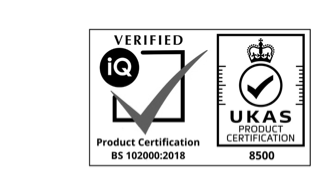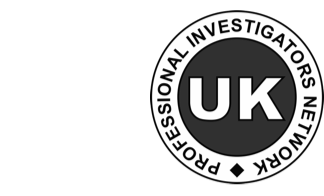Whether you work for a large corporation or a smaller business, moonlighting employees can have a significant effect on your organisation. From financial implications to productivity consequences, employees with non-disclosed second jobs could become a serious problem within your company.
It can also be a difficult situation to handle. If you suspect that an individual is moonlighting, it’s essential that everything is handled delicately, particularly if you don’t have proof of their activities or the situation yet. Accusations or disciplinary actions taken without concrete proof could open your business up to legal ramifications, such as unfair dismissals or unfair disciplinary processes. That’s why it’s so important to know the facts about moonlighting before you proceed.
To help get you started, we’ve put together a guide to moonlighting, what it means for your business, and what steps you can take to move forward, including the hiring of a private detective.
What Is Moonlighting?
In its most simple definition, moonlighting refers to a second job in addition to an individual’s regular employment. It can come in many forms, but usually becomes an issue if your employee has not disclosed their additional employment or it poses a conflict of interest for your business.
Is Moonlighting Illegal in the UK?
No, moonlighting isn’t illegal. Many of those who choose to take on a second job do so in order to supplement their income or make ends meet.
However, an employee’s second job could be a breach of contract if your business has policies against moonlighting or there are conflicts of interest. Even if you don’t have policies like this in place, there could be instances that warrant disciplinary action if the individual’s additional employment begins to affect their performance in their regular employment with you.
7 Signs Of Moonlighting In The Workplace
It’s not always easy to tell if your employee is moonlighting. You may have a ‘gut feeling’ that something isn’t quite right or have suspicions when their behaviour begins to change. There are some common signs of moonlighting that could indicate your employee has a second job. It’s important to keep an eye out for these and carry out an employee investigation if you believe it is necessary.
These signs can include:
1. An Increase In Requests To Work From Home
Flexible working can be a great way to encourage productivity and loyalty in employees you trust. However, it can become problematic if you don’t have a record of what your employee is completing while working from home.
If you consistently have to question the work your employee is doing while at home or can’t see any evidence that work is being done, it could be that they are using this time for activities related to their second job. This is just one instance of where moonlighting can become a very real problem and the business will need to take appropriate action.
2. Leaving The Office Unannounced
Employee retention is all about keeping the good employees who don’t need to be micromanaged, as you can trust them to get the job done in their own way. However, if you tend to have a ‘hands-off’ approach to management, there may be some individuals that take advantage of that.
Moonlighting employees can struggle to juggle both jobs successfully and their second job may begin to encroach on their work with you. If you notice the individual leaving the office unannounced, perhaps to take phone calls or for extended periods of time, it could mean that they’re dealing with issues related to their additional employment.
3. Taking Long Meetings Out Of The Office
Offsite meetings are often required for many jobs and it can be customary for employees to spend significant portions of their time away with clients or at different locations related to your business.
You should, however, become concerned if there is no real record of these meetings taking place. If there are no meeting minutes, no feedback about topics discussed or there is no confirmation by the party your employee was supposed to be meeting with, it could be that the individual is using this time for activities unrelated to their employment with you.
4. Unhappy or Disgruntled Co-Workers
As with many other workplace issues, you may find that the knowledge your employee is moonlighting is common amongst other co-workers. It may be the case that particular employees are friends with the problematic ones and don’t want their employer to discover the truth.
It can however cause issues amongst other staff that are aware of the situation and taking on an increased workload to compensate for the moonlighting employee’s poor productivity. This is one of the most dangerous consequences of moonlighting, as it is not only the employee in question who is performing poorly but also having a knock-on effect for other employees. This very often leads to anonymous tips and whistleblower situations, but any employer should ensure they take precaution to gather the evidence they need before responding to anonymous tips.
This is a common example of moonlighting as a conflict of interest, as the damage is spreading further within your business.
5. Poor Concentration & Tiredness
Poor timekeeping, lower levels of concentration and increased tiredness could be another sign that your employee is moonlighting. If they’re attempting to squeeze in work before and after their 9-5 job or working over the weekend, it is inevitable that they will feel more tired and have poorer focus in their employment with you.
Lack of concentration will have a direct effect on their productivity and performance and can still very much apply when employees are working two jobs remotely.
This is particularly important if your business relies on well-rested employees to perform their jobs safely and effectively. There could be serious health and safety considerations, particularly in industries like construction, factory lines, hospitals and many more.
6. Calling In Sick Regularly Or Extended Periods Of Sick Leave
It can be commonplace for moonlighters to take advantage of sick leave to work other jobs. It is also the most common scenario in which private investigators see moonlighting taking place, although some employers offer enhanced sick pay (sick pay in addition to Statutory Sick Pay (SSP)), all employers have a legal obligation to pay SSP. Despite Statutory Sick Pay being only £109.40 (Rising to £116.75 in 2024) it amounts to an additional £400-£500 per month when supplementing an additional income stream. Many employee’s make brief returns from long-term sickness briefly as it restarts the period in which they are entitled to receive Statutory Sick Pay (28 consecutive weeks). Unexplained absences (for example, without a doctor’s note) could be a sign that your employee is using that time for a second job.
It’s also worth ensuring that your employee is not working if they have taken an extended period of sick leave. Moonlighting during sick leave is very much a breach of both trust and sickness policies.
7. Arriving Late Or Leaving Early
Poor timekeeping is often symptomatic of a moonlighting employee. Even if they keep their second job out of hours, it is likely that they will begin to feel the pressure of juggling two jobs. It could mean that they cut their hours short with you, arriving late or leaving early in order to manage their time for both jobs.
This, of course, could have a productivity impact on their work with you and qualify as a breach of their employment contract if they’re not working their contracted hours.
The Cost Of Moonlighting On A Business
We’ve mentioned some impacts of moonlighting above, but it’s important to reiterate that moonlighting can have serious cost implications for your business. Decreased productivity and performance has a clear financial impact, and in some cases you might be paying your employee for work they are not doing.
It’s also important to think about the impact of your employee taking their skills and knowledge elsewhere. If the individual is working with a competitor or a company within a similar industry, there is a chance that they are sharing confidential or proprietary information gained whilst working within your company.
Even if they are not doing so, working with a competitor means that your employee is assisting with the promotion of competitive goods or services that could result in a financial impact for you.
In addition to the direct financial cost, the knock on effect is that other employees often pick up the slack, and many of them may be aware that the problematic employee is moonlighting. It is at this point that the effects on the business go beyond the cost of the employee and start to spread amongst other members of the workforce.
How Can A Private Investigator Help?
While the above signs of moonlighting are all indicators that something isn’t right with your employee, they do not definitively mean that your employee has a second job that conflicts with yours.
With this in mind, it is important that you find concrete proof of moonlighting before taking disciplinary steps. A private investigator with commercial experience is able to provide you with evidence or proof of the situation for you to move forward.
Remember that an employee could claim unfair dismissal or unfair disciplinary processes if you don’t have proof, so it’s a wise move to hire professional help to address the situation.
Benefits Of A Private Investigator
While it might seem like a drastic step to get a private investigator involved, it’s important to remember that moonlighting employees can have a serious impact on your business performance and financial success.
It is possible to conduct the investigation yourself, but there are real benefits to hiring a private investigator to do so. These can include:
1. Professional Experience
Private investigators have professional experience in investigating a wide variety of situations. Those with commercial experience (like us here at Reveal PI) will know exactly what to do to find out more about a moonlighting employee. That means your private investigator will save you time and effort, as well as ensuring that the investigation is carried out discreetly and covertly without causing the employee any unwanted stress or duress.
2. Specialist Tools & Technology
As well as experience, private investigators have specialist tools and technology to ensure that the job is done efficiently and effectively. These are often not possible (or very expensive) for companies or individuals to access themselves.
3. Independent Verification Of Information
When you suspect an employee of moonlighting, the situation can become tense or conflictual. It’s also possible that the moonlighting individual refutes any evidence you find yourself as biassed. With this in mind, it’s useful to have a non-partisan private investigator involved to provide independent proof of the situation.
Lets Summarise
Whatever the size of your organisation, moonlighting can have a serious impact on your business. We also know that it’s not always easy to prove that your employee has additional employment or explain why their behaviour has changed significantly.
Ever considered hiring a private investigator in the UK? Call Reveal PI today on 0121 663 0251 or visit 11 St Paul’s Square, Birmingham, West Midlands B3 1RB.

 Surveillance
Surveillance Matrimonial Investigations
Matrimonial Investigations Bug Sweeping
Bug Sweeping GPS Vehicle Tracking
GPS Vehicle Tracking Lie Detector Test
Lie Detector Test Person Tracing
Person Tracing Employee Investigations
Employee Investigations Asset Tracing
Asset Tracing Fraud Investigations
Fraud Investigations Injury & Insurance Investigations
Injury & Insurance Investigations











